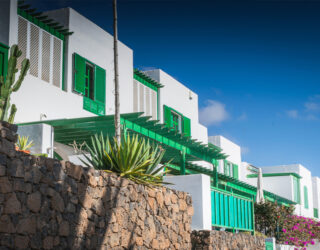Growing pressure on the housing market has made regions such as Andalucía and the Canary Islands review their land use rules. This article looks at the latest measures adopted to change from tourism to residential use and vice versa, in an attempt to adapt urban planning to the current needs of society and the market.
Almost all the tourism laws in the various regions associate the type of land allowing the accommodation activities of tourism establishments with their use classification in the municipal planning rules. The definition and, should the case arise, preservation of tourism land use is more advisable than ever if it is sought, in times of growth and prosperity, to achieve adequate planning and reclassification of uses, adjusting services, infrastructure and dedicated land to this unique economic activity.
However, the social context also requires lawmakers to pave the way for quick and easy changes of use that will free up the residential land needed to satisfy urgent housing needs.
Added to this is the difficulty to strike a balance between the traditional accommodation use exclusively or purely for tourist accommodation and the single operator principle with new classes or trends (health, education, etc.) that society and therefore the market is demanding.
It is therefore a matter of finding the right balance between the principle of specialization and the necessary principle of use fluidity or compatibility. And it is to these changing circumstances that a few legislative measures seem to be attempting to respond:
In Andalucía, the currently in force Tourism Law (Law 13/2011 of December 23, 2011) openly prohibits (in article 18) any other use of establishments and accommodation units, including residential, without an innovation of the planning instrument first being carried out. But this principle was recently modified, by Decree-Law 1/2025 of February 24, 2025 on urgent housing measures in Andalucía, aimed primarily at increasing the supply of housing at affordable prices, and which – among other measures – facilitates, for a transitional two-year period, the alternative residential use of protected housing on land classified for service use as offices or tourist accommodation establishments, as well as on plots classified as dedicated private land that does not have a specific allocated use (in this case, as long as the protected housing units are to be used permanently as rented housing) without needing to amend the municipal planning rules and subject to certain conditions. It has also been allowed for land classified for municipal infrastructure to be used for dedicated housing or accommodation.
Furthermore, it states in relation vacation rentals that, to be able to use a residence for tourist accommodation, the urban planning rules must state that this use is compatible with residential use, although residential use for a plot does not in itself imply that residences can be used as vacation rentals, and a moratorium could be ordered where there are overriding reasons in the public interest.
Turning to the Canary Islands, Law 2/2013 of May 29, 2013, on the renewal and modernization of tourism set out a number of measures aimed at redirecting the growing use of tourist establishments as residences in certain urban areas. Namely, article 23 of that law lays down the so-called “duty to continue with tourism use” which imposes on owners of establishments the obligation to use them effectively to carry on tourism activities.
On March 18, 2025, the Canary Island Official Gazette published Decree Law 2/2025 of March 17, 2025 on urgent measures related to the duty to continue with tourism use and amending Law 2/2013 of May 29, 2013 on the renewal and modernization of tourism in the Canary Islands, and its implementing regulations, approved by Decree 85/2015 of May 14, 2015. The preamble to Decree Law 2/2025 explains that, in view of the housing emergency in the Canary Islands, it has become necessary to enable uses for tourism to be changed to uses for main residences, to reduce the shortage of housing to be used as main residences in tourist areas. As a result, the reforms introduced in Law 2/2013 and its regulations relate to repealing article 24 on the “declaration of a breach of effective use” which until now has been issued in relation to breaches of the duty to continue with tourism use, in addition to relating to providing a set of rules on an irreversible change of use.
Moreover, in line with this trend followed by regional lawmakers, there are rules on the change from tourism use to residential use for plots classified as mixed use for either residential or tourism, within 3 years from the entry into force of this legislation. This change may be made where:
- The operation of tourism businesses has become inviable according to the terms laid down by the legislation in force or from the standpoint of profitability.
- Frequent changes from tourism to residential use are occurring which are difficult to revert.
- There is a functional incompatibility between tourism use and the area where they are located.
This procedure is initiated by filing an application with the local council for the area concerned, accompanied by a study of the area or premises that provides reasons for the area or building to be made specifically for residential use.
After this change-of-use application has been filed, the owner can request the halting of (i) any penalty proceedings for breach of the duty to continue with tourism use and its restrictions, (ii) any appeals brought in these proceedings and (iii) any enforcement proceedings for decisions. This, as a general rule, will stop the period allowed for a decision running, as well as tolling the statute of limitations period for infringements and penalties for up to 6 months or 1 year.
Lastly, to prevent this solution prompting the appearance of vacation rentals, and as a result failing to achieve the sought housing aims, article 3.6 clearly stipulates that: “Any buildings for tourism use that have been changed to residential use cannot under any circumstances be reverted to a use of the residence for tourism purposes under this Decree Law, and no urban planning law can authorize that use”.
In short, the trend followed by lawmakers in Andalucía and the Canary Islands is to facilitate changes from tourism to residential use, while, on the other hand, restricting or redirecting vacation rentals to the land type for tourism and nonresidential use. We will have to keep an eye on the new legislation in these and other regions.
Partner of the Administrative and Constitutional Law department






